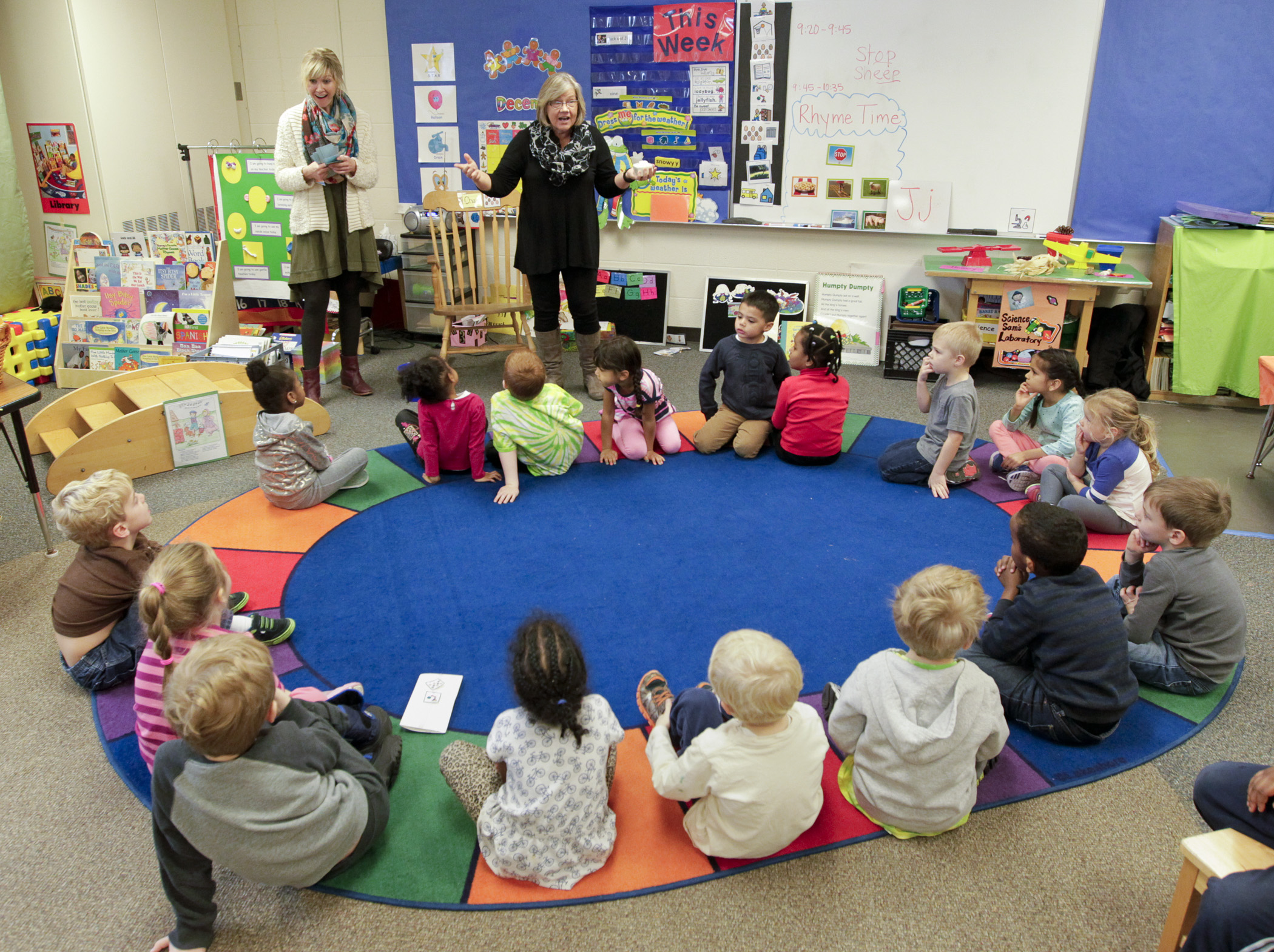Legislation calls for end to disciplinary dismissals of K-3 students

Many schools and teachers have relied on dismissal as a tool to deal with errant and unruly students. But the brunt of such exclusionary practices has been borne by minorities, particularly students of color, creating more educational disparities and opportunity gaps in schools, experts say.
Keeping young learners from classrooms can have long-term impacts, especially when the punishment is based on subjective reasoning, said Rep. Ruth Richardson (DFL-Mendota Heights).
She sponsors HF951 that would prohibit dismissals of students in kindergarten through third grade, unless non-exclusionary discipline measures have been exhausted, and there is an ongoing serious safety threat to the child or others. It would also appropriate $5 million to the Department of Education to provide grants to train school staff on non-exclusionary disciplinary practices.
The bill was discussed on an informational basis by the House Education Finance Committee Wednesday.
Richardson said the bill’s purpose is to create a fair process. “One suspension can change the entire trajectory of a child’s life.”
Research shows students with a disability, and students from Black and Indigenous communities face more disciplining in school, and most dismissals tend be based on subjective reasons, like showing lack of respect instead of objective reasons like assault, Richardson said.
According to a letter from the Solutions not Suspensions Coalition, “In the 2018-19 school year – which is the last school year uninterrupted by Covid-19, data from the Minnesota Department of Education shows that, of kindergarten students, the percent of suspensions accounted for by white students was less than one percent. For Black students it was 6.69% — over 8 times as much. And the rate of suspensions for Black students increased from kindergarten — at 6.69%, to 10.5% for 1st grade, 13% for second grade, and nearly 15% for 3rd grade. The rate for suspensions for American Indian/Alaska Native students that year was almost 17%. Meanwhile, the rate for white students hovered right around 1% for all three grades. And young students who have disabilities also experience disparities – while they accounted for only about 13% of students in grades K-3, Kindergartners with disabilities accounted for 30% of suspensions, and that percentage grew to 44% by third grade.“
Removing subjective discretion in disciplining students is critical for fairness, especially when expectations are not clear in the classroom, said Bernadeia Johnson, former superintendent of Minneapolis Public Schools. Students not in school can’t learn nor develop a sense of belonging and schools need to make the educational process work for all as intended, she said.
Suspensions lead to dropping out of schools, disengagement, academic failures and negative behaviors that can lead to jail, said Tonya Draughn, executive director of Uplift MN/L.I.F.T. to End Poverty.
She said her son was suspended in kindergarten for taking long bathroom breaks. Later, talking back to teachers or indulging in play-fights with friends were used to discipline him, she recalled. That experience still haunts him, she said. Instead of taking students out of classroom, teachers need to have one-on-one sessions with them to get to the root of the problem.
Suspensions and expulsions don’t improve outcomes, said Maren Hulden, an attorney with Mid-Minnesota Legal Aid. Such actions in class also affects students who witness others being disciplined.
Many schools are using relationship-based and skill-building approaches to address behavioral issue, instead of suspensions, she said.
Rep. Sondra Erickson (R-Princeton) wondered why a mandate was needed if schools already using alternative approaches.
The companion, SF1048, is sponsored by Sen. Patricia Torres Ray (DFL-Mpls), and awaits action by the Senate Education Finance and Policy Committee.
Related Articles
Search Session Daily
Advanced Search OptionsPriority Dailies
Ways and Means Committee OKs House budget resolution
By Mike Cook Total net General Fund expenditures in the 2026-27 biennium will not exceed a hair less than $66.62 billion.
That is the budget resolution approved Tuesday by the House Ways...
Total net General Fund expenditures in the 2026-27 biennium will not exceed a hair less than $66.62 billion.
That is the budget resolution approved Tuesday by the House Ways...
Minnesota's budget outlook worsens in both near, long term
By Rob Hubbard It looks as if those calling for less state spending could get their wish, judging from Thursday’s release of the February 2025 Budget and Economic Forecast.
A state su...
It looks as if those calling for less state spending could get their wish, judging from Thursday’s release of the February 2025 Budget and Economic Forecast.
A state su...